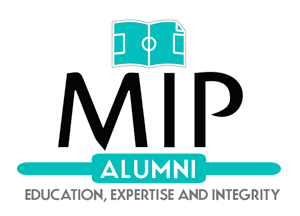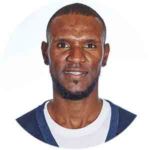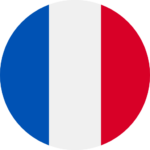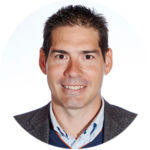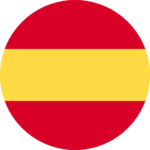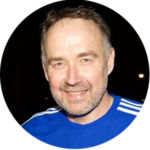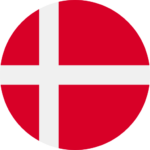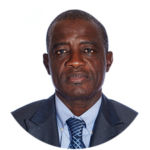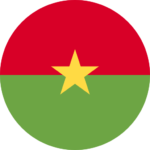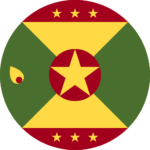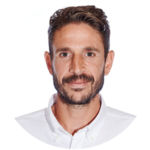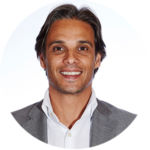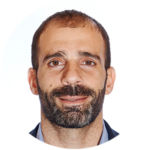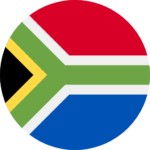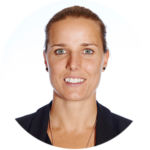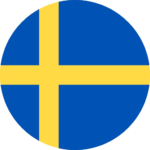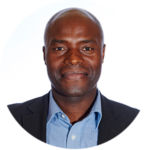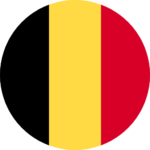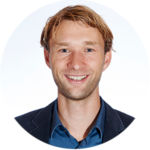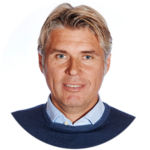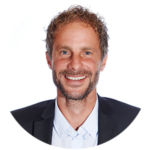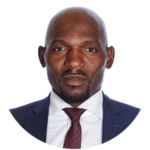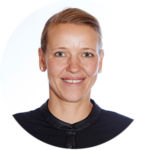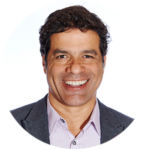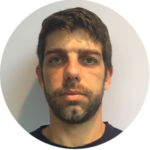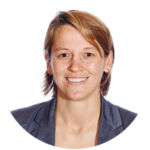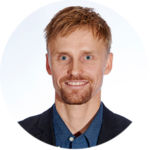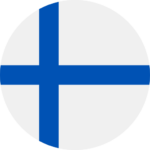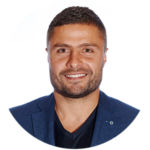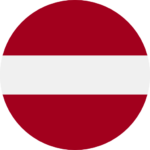Graduates of 2017
24 High-achieving former internationals from around the world
These men and women have all been awarded an executive master’s degree by the University of Limoges (60 ECTS credits) in 2017, and are now looking to use their newly-acquired skills beyond the football pitch.
The UEFA MIP equips high-profile ex-international players to transfer their playing strengths into effective management skills.
Leadership, discipline and a commitment to high-level performance are the hallmarks of trophy winners – applying those traits to the organisation of football is among the primary aims of the course.
Key roles in all areas of football thrive on vision, planning, analysis and observation – the UEFA MIP helps former players to apply these skills in an administrative context, producing role models for success across multiple spheres of football management.
Work history
Consultant, beIN Sports;
Marketing and sponsoring, Olympiacos Foundation;
President, Éric Abidal Foundation
Football career
Played for AS Lyon-Duchère, AS Monaco FC, Lille OSC, Olympique Lyonnais, FC Barcelona and Olympiacos FC;
67 caps for the French national team;
UEFA Champions League winner, 2009 and 2011; UEFA Super Cup winner, 2009 and 2011; FIFA Club World Cup winner, 2009 and 2011; three-time French league winner; four-time Spanish league winner; Greek league winner; two-time Spanish Cup winner; Greek Cup winner; part of the 2007 UEFA Team of the Year.
Languages
French
English
Spanish
UEFA MIP Project
For his final project, Eric chose to delve in to international talent academies and how important they are as strategic tools in creating a world brand as well as an international talent pipeline for the first team.
In the report he suggested an international academy model and highlights the importance of integrating club identity, football philosophy, training methodology, and facilities.
Work history
Director, Olimpic Club sports centre, Murcia
Futsal career
Played for Vijusa Valencia FS, Talavera FS and ElPozo Murcia;
180 caps for the Spanish national team;
Two-time FIFA World Cup winner; two-time FIFA World Cup runner-up; five-time UEFA European Championship winner; UEFA Super Cup winner; four-time Spanish national futsal league (LNFS) winner; three-time LNFS Spanish Cup winner; three-time LNFS Spanish Super Cup winner; four-time Murcia football federation Presidents Cup winner; three-time best LNFS player; seven-time LNFS best defender; Futsal Planet Awards best player 2009; 2012 FIFA World Cup Silver Ball Award winner.
Languages
Spanish
English
Education
Currently studying for:
diploma in business studies, University of Murcia;
advanced sports technician higher level, with a specialisation in futsal;
master’s degree in sports management, Spanish Olympic Committee;
advanced qualification in leadership and team management.
Other activities
Given various presentations for international companies
Contributed to publications on sport and business
Work history
Assistant coach, 1. FSV Mainz 05, Germany; Head coach, Silkeborg IF; Head coach, Danish Under-21s; Head of the A+ project (a player development programme supported by the Danish FA); Assistant coach, Danish senior team; Head coach, Vejle BK; Assistant coach, Vejle BK; TV consultant.
Football career
Played for Silkeborg IF, Odense BK, Vejle BK, Panionios GSS and Wichita Wings; 4 caps for the Danish senior team; Winner of the Claus Rode Award, an award given to people whose work has developed, inspired or in other ways improved Danish football.
Languages
Danish
English
German
Education
UEFA Pro licence;
Bachelor’s degree in scientific physical education, University of Southern Denmark (in progress).
UEFA MIP Project
Keld realised that football is changing – and both the game and the business – and its dynamic and interconnected nature makes it one of the most complex and therefore strategic challenging industries.
He believed that the most successful football clubs and associations have made strategy a competitive advantage. The report suggests a Football Strategy Model as a generic tool to develop more focussed, coherent, competitive, and sustainable strategies.
Other activities
Project development for the national football centre in Denmark.
Work history
General Secretary, Burkina Faso Football Federation, Technical inspector, deputy chief executive’s office, postal service, Burkina Faso; Advisor, Burkinabe embassy, Washington DC; Attaché, Burkinabe embassy, Accra; Manager, national postal service office, Burkina Faso; Member of the Burkinabe national assembly; Second vice-president of the Afro-Arab parliament in Syria.
Football career
Played for Etoile Filante de Ouagadougou;
52 caps for the Burkinabe national team;
As a player: three-time Burkinabe national champion; three-time Burkinabe Cup winner; Burkinabé SuperCup winner;
As a coach: four-time Burkinabe national champion, two-time Burkinabe Cup winner.
Languages
French
English
More
Hausa
Ashanti
Education
Bachelor’s degree in business administration, with a specialisation in human resources, University of the District of Columbia, Washington DC;
Training on innovation and postal services, Ecole des Postes de Rotterdam;
Coaching diploma, FUTURO II;
Inspector of postal services and financial resources diploma, Ecole Nationale des Postes et Télécommunications, Paris
Work history
Sporting Director, PSG Women,
Football consultant, BeIN Sports;
Sport director, FC Nantes.
Football career
Played for FC Nantes, Anorthosis Famagousta FC, Stade Rennais FC, FC Girondins de Bordeaux, Olympique de Marseille, Liverpool FC, Lille OSC and RC Lens;
Three caps for the French national team;
Two-time French league winner
Languages
French
English
Spanish
Italian
Education
University diploma to become a general manager in sports organisations, Centre for the Law and Economics of Sport, Limoges;
BTEC Higher National Diploma in marketing.
UEFA MIP Project
The objective of Paris Saint-Germain is to become one of the most successful clubs and one of the most valuable sports brands in the world. PSG brings in to consideration how to make the players who created the club’s history an asset in developing its social and business activities.
This report examines how top European clubs are activating their ex-players from a business and social point of view, and with special focus on “Legends game”. This last point is considered an important issue in developing the club abroad. The report identifies the specific needs of PSG in developing its social and business aspects.
Work history
Sporting director, Panathinaikos FC.
Football career
Played for Pontioi Verias, Olympiacos FC, Newcastle United FC, Leicester City FC and AEL Limassol FC;
70 caps for the Greek national team;
UEFA EURO 2004 winner; two-time Greek national champion; Greek Cup winner.
Languages
Greek
English
Education
UEFA Pro licence
UEFA MIP Project
Nikos’ project was a case study of how to set and implement a medium-to-long term plan seeking to address structural deficiencies in Omonia Nicosia. Working as a sporting director, He quickly realised that success is largely dependent upon understanding the cultural elements within an overarching professional environment – the distinct way in which Cypriot people act and think.
Applying new strategies and methodologies in the club, turned out to be a process not solely related to pure organisational issues, but also bound to wider, more comprehensive cultural aspects. This challenging environment, economical and cultural, yielded a few innovative solutions in the quest of enhancing the club’s performance.
Work history
Founder and chairman, Jason Roberts Foundation; Founding member, Get on Board course; Founding member, Sports People’s Think Tank; Committee member, Professional Footballers’ Association Management Committee; Panel member, BBC Sports Personality of the Year; Advisor, BBC Diversity Committee; Leader of media outlets and presenter for BBC Sport’s Match of the Day, World Have Your Say and BBC Radio 5 live’s 606 football phone-in.
Jason is currently the Director of Develop for CONCACAF.
Football career
Played for Hayes FC, Wolverhampton Wanderers FC, Torquay United FC, Bristol City FC, Blackburn Rovers FC, West Bromwich Albion FC, Portsmouth FC, Wigan Athletic FC and Reading FC;
16 caps for the Grenada national team;
2012 English national championship winner.
Languages
English
Education
An introduction to business studies, Open University, UK;
Corporate governance qualification, Association of Corporate Governance Practitioners.
UEFA MIP Project
Football is an integral part of global society and, as the world’s most popular sport, it has an invaluable role to play in driving social development and can influence this agenda across the globe.
In this proposal we focus on the good work of players globally through their charitable activities and social activism through the use of Independent Player Charities (IPCs). We establish a mechanism to raise awareness of the work of players in promoting social development, promote IPCs as a unified network, sharing best practice, learning and opportunities, and raise funds to create a consistent and focused network of key IPCs.
Other activities
Invited attendee, FIFA Task Force against Racism and Discrimination.
Work history
Assistant coach and analyst for the Under-19 squad, Maccabi Tel-Aviv.
Football career
Played for Hapoel Jerusalem FC, Hakoah Maccabi Amidor Ramat Gan, Maccabi Tel-Aviv FC, Maccabi Petah-Tikva FC, Hapoel Ramat Gan FC, SC Veendam, Beitar Tel-Aviv Ramla FC and Hapoel Katamon Jerusalem FC; Toto Cup winner.
Languages
Hebrew
English
Dutch
French
Education
Bachelor’s degree in sociology and anthropology, combined with a general degree in humanities, Tel Aviv University;
Master’s degree in humanities, Tel Aviv University (in progress);
UEFA B diploma, Israel Football Association;
UEFA A diploma, Israel Football Association (in progress).
UEFA MIP Project
Dan’s report introduced an outline for the establishment of a 21th century club football scouting department, resting new approaches in this field. Due o recent developments in technology and performance analysis’ capacity, the needs and capabilities of scouting operations undergone a substantial change which calls for re-evaluation of this organizational function.
The report suggests that scouting operations should reflect the importance they hold for a club, performing a much more systematical, comprehensive endeavor. Furthermore, it is argued that due to the evolving essence of scouting and performance analysis attitudes, methodological knowledge for itself should be perceived as an asset and be regarded as an object for inquiry. Accordingly, those with knowledge seeking departments should function as a tool in favour of an information-based decision making mechanism within the club. This inclusive approach calls for a new, broader definition of these departments, respectively, intelligent departments.
Other activities
Co-founder and voluntary committee member of the New Israeli Football Players Organisation.
Work history
International advisor to the president of SL Benfica
Football career
Played for Amarante FC, Boavista FC, SL Benfica, ACF Fiorentina, SC Braga and Blackburn Rovers FC;
79 caps for the Portuguese national team;
Played in the 2002 FIFA World Cup; 2006 FIFA World Cup semi-finalist; UEFA EURO 2000 semi-finalist; UEFA EURO 2004 runner-up; played in UEFA EURO 2008; played in the 1996 Olympic Games; two-time Portuguese national champion; two-time Portuguese Cup winner; three-time League Cup winner; Italian Cup winner.
Languages
Portuguese
English
Italian
UEFA MIP Project
Promoting more extensive training schedules also creates the need to adapt both the logistics as well as social and educational structures around the young talents. Creating a school inside the Academy, would allow the players to manage their school and training schedule more effectively, enhancing training quality and quantity. It would also enable improved personal development in line with the values of the club, and optimise psychological, nutritional and medical monitoring.
Work history
Football Agent for Play11, Sport Director, Olympiacos FC
Football career
Played for Olympique de Marseille, Chelsea FC, Watford FC, Olympic Beirut, Ionikos FC and Ofi Crete FC;
55 caps for the South African national team;
Played in the FIFA World Cup in 1998 and 2002; played in the Africa Cup of Nations in 2000, 2002 and 2004; Lebanese premier league winner; Lebanese FA Cup winner.
Languages
French
English
Arabic
UEFA MIP Project
Pierre’s report related to the question of acquiring a football club and developing it in all areas. Every club development begins with a situational analysis of the club and its environment. A substantial challenge is finding the balance between economic growth – a process which usually involves the selling of talents – and a steady enhancement of performance.
The report offered an overview of the proper way to run a club from bottom level to high level or from being a small club to becoming a winning club on the field, as well as off the field – relating to questions of revenue, marketing, actions on the transfer market, etc.
Work history
Executive Committee member of the German players’ union;
Football career
Played for Hannover 96, SC Freiburg and Borussia Dortmund;
31 caps for the German national team;
2002 FIFA World Cup runner-up; third place in the 2006 FIFA World Cup; third place in the 2005 FIFA Confederations Cup; 2002 UEFA Cup runner-up; played in UEFA EURO 2004; 2013 UEFA Champions League runner-up; three-time German national champion; German DFB Cup winner.
Languages
German
English
UEFA MIP Project
Professional and personal development of football players on and off the pitch is one that has never been more relevant than in today’s ever-changing environment in the European and global football landscape. Players become professional at younger ages, their lives have become more and more transparent, they are confronted with the rise of online and social media.
Consequently, the support and development of players to handle this complex future comes more and more important. Mentoring offers a promising solution to accompany players on and off the pitch, developing and preparing them for life after football. The experience and knowledge from former high-performance professional players can be a valuable source from which younger players can benefit. My vision of a player mentoring concept is providing a basis for answering the question: How and on in which fields can the German Football Association or any other professional football club lead, coach, accompany and develop active and former players to show their full potential on the field and to boost their personal growth.
Other activities
Member of several youth soccer foundations and foundations against racism and child prostitution.
Work history
Quality controller, Betongindustri AB; Administrator, ENN Advokatbyra; Youth coach, Hammarby IF DFF; Train conductor, Roslagstag AB.
Football career
Played for Kopparberg/Gøteborg FC, Djurgardens IF, 1. FFC Frankfurt, Sky Blue FC and Hammarby IF DFF;
64 caps for the Swedish national team;
Third place in the 2011 FIFA Women’s World Cup; played in UEFA Women’s EURO 2009; played in the 2008 Olympic Games; UEFA Women’s Champions League runner-up; Swedish national champion; German DFB Cup winner; Swedish Cup winner; voted 2009 player of the year by the Swedish elite women’s referees; voted 2008 breakthrough of the year at the Swedish Football Awards.
Languages
Swedish
English
German
Education
Master’s degree in mechanical engineering, KTH Royal Institute of Technology (in progress);
Course in psychology, University of Gothenburg;
Course in German, VHS Frankfurt;
Course in industrial economics, Linköping University;
Technical preparatory, KTH Royal Institute of Technology;
Coach, Swedish Football Association.
Work history
Ambassador, Football Against Racism in Europe; Honorary president of L’extrascolaire au Coeur de l’intégration; Manager, MMP SPRL.
Football career
Played for KV Kortrijk, R. Excelsior Mouscron, R. Standard de Liège, Sporting Clube de Portugal, Galatasaray AŞ, RSC Anderlecht and Larissa FC;
56 caps for the Belgian national team;
Played in the FIFA World Cup, 1998 and 2002; played in UEFA EURO 2000; Portuguese national champion; two-time Belgian national champion; Belgian Cup winner; two-time Belgian Super Cup winner
Languages
French
English
Dutch
Education
Baccalaureate in physical education
UEFA MIP Project
Football is the most widely played sport on the planet and it is also a sport where sexual orientation and gender identity are hardly ever talked about. Football can therefore contribute enormously and be a leading example: on the road to an inclusive society, where everyone can participate regardless of his or her sexual orientation or gender identity. Football belongs to everyone.
Heroes of Football is going to turn the tide and make sure everyone who wants to play football can do so while having fun and players can be who they are, however they are.
Work history
Chairman, Real Estate Company Olympia Buildings AG; Founder, partner and CEO, S. Rolfes & M. Elsässer GmbH; Member of the economic advisory board of the Mittelrhein football association; Member of the Players‘ Committee of the German players‘ union.
Football career
Played for SV Werder Bremen, SSV Reutlingen, TSV Alemmania Aachen and Bayer 04 Leverkusen;
26 caps for the German national team;
UEFA EURO 2008 runner-up; German national championship runner-up; German Cup runner-up; captain of Bayer 04 Leverkusen for seven years.
Languages
German
English
Spanish
French
Latin
Education
Master’s degree in sports management, University of Applied Sciences, Koblenz (in progress).
UEFA MIP Project
Simon understands that a talent academy is an important strategic tool in creating a quality player pipeline for the first team as well as a club identity.
He wrote a report that analysed the infrastructure in nine European top clubs and he focussed on the three main departments, first team, youth and administration. He also highlighted the critical elements in establishing a successful academy.
Other activities
Given more than 150 lectures on subjects including leadership, motivation, how to manage conflicts and work atmosphere;
Written various publications, including two football books and one children’s fiction book.
Work history
Project Leader – VAR, UEFA referee observer, referee coach and instructor and Referee Convention advisor; Chairman of the Italian Serie B Referee Committee; Chairman of the Italian Serie C Referee Committee; Head of the refereeing department, Russian Football Union; National advisor, Italian National Union of Kinesiology; Technical director and head of rehabilitation, Turin; Teacher, SUISM (University of Sports Sciences/Physical Education), Turin; Head of public relations and marketing and communications director, San Giuseppe Benedetto Cottolengo hospital, Turin; Financial consultant, Banca Fideuram.
Refereeing career
2005 FIFA Confederations Cup semi-final; 2006 and 2010 FIFA World Cup round of 16; FIFA Under-20 World Cup, 2003 to 2009; UEFA EURO 2008 opening game and final; Three UEFA Champions League semi-finals; 2009 FIFA Club World Cup semi-final; Serie A referee, 1996 to 2010; Serie A referee of the year, 2006 to 2009; 2008 International Federation of Football History and Statistics best referee in the world.
Languages
Italian
French
English
Education
Degree in sports management, University Claude Bernard Lyon; Degree in sports and physical sciences, SUISM, Turin; Master’s degree in sports management and marketing, SDA Bocconi university, Milan; Master’s degree for executives of health companies, Milan.
UEFA MIP Project
The 130th Annual General Meeting (AGM) of The International Football Association Board (The IFAB) in Cardiff on 5 March 2016 approved a two-year period of “live experiments with video assistance for clear errors in matchchanging situations” involving Video Assistant Referees, who will be match officials, to determine if ‘the implementation of VARs improves the game’.
The aim of the experiment is not to achieve 100% accuracy for all decisions as there is no desire to destroy the essential flow and emotions of football which result from the game’s almost non-stop action and the general absence of lengthy stoppages. The philosophy is: “minimum interference – maximum benefit” Roberto’s project seeks to understand the nuances and positives of the utilisation of VAR.
Other activities
Author of the book Nessuno parla dell’arbitro (Nobody talks about the referee).
Work history
Football Education Assistant, UEFA; Operations Assistant, UEFA.
Football career
Played for Servette FC, Grasshopper Club Zürich, Olympique Lyonnais, RCD Mallorca, FC Basel 1893 and AS Monaco FC;
81 caps for the Swiss national team;
Played in the 2006 FIFA World Cup; played in UEFA EURO 2004 and 2008; six-time French national champion; French Cup winner; two-time Swiss national champion.
Languages
French
German
English
Education
Diploma from the André-Chavanne business school, Geneva; Coaching diploma for youth football, Geneva.
UEFA MIP Project
The world of football never stands still. We continuously search for new ideas, innovation, and improvement to develop the game.
There is a huge gap between all associations, in terms of financial and human resources, educational systems, know-how and expertise. Bringing associations together to exchange and share ideas and building bridges between them will allow them to better develop, improve, and reduce the gap between well-developed associations and less well-developed associations. This is crucial for football in general, from Grassroots football to Elite football in both the Men and Women’s game.
Work history
Vice-president of Cameroon’s national footballers’ union, in charge of human resources, public relations and direct communication with Cameroonian professional footballers; Member of the FIFPro Technical Committee; Member of the Executive Committee of the Cameroonian Football Association.
Football career
Played for RC Bafoussam, Cerro Porteño, Gençlerbirliği SK, Real Madrid CF, Middlesbrough FC, Chelsea FC, MKE Ankaragücü and Larissa FC;
110 caps for the Cameroonian national team;
Two-time Africa Cup of Nations winner; 2000 Olympic Games gold medallist; two-time UEFA Champions League winner; three-time English national champion; Spanish national champion; Cameroonian premier league winner; English League Cup winner; FA Cup winner; FA Community Shield winner; Spanish Super Cup winner; Cameroonian Cup winner; nominated for the 2000 FIFA Ballon d’Or.
Languages
French
English
Spanish
UEFA MIP Project
FIFA, has been championing, for many years, the “Respect of Contract” by the two parties who enter into a commitment to each other: the club (the employer) and the player (the employee). A study by FIFPro’s task force underlines the fact that it is mainly the professional footballer who honours these commitments.
The aim of this report is to raise awareness to the problems regarding players’ rights across the world. Many players suffer extreme hardship and financial ruin because of the treatment they receive from their clubs, particularly in relation to non-payment of salary and in respect of contracts. Players are often pressured to join a club not of their choosing – an undeniable reality which stands at the heart of a dysfunctional transfer system. These findings show that players find themselves too often at the mercy of clubs that exploit the system to bully them into submission. This reality calls for an urgent reform.
Work history
Administrator, VfL Wolfsburg; Tutor, the European Sports Academy, Brandenburg; Sales and marketing assistant, Hyapur Deutschland GmbH; Internship with the Social Democratic Party of Germany; Internship with the German association for disabled sport.
Football career
Played for VfL Wolfsburg, 1. FFC Turbine Potsdam, SC 07 Bad Neuenahr, FCR 2001 Duisburg, Valur Reykjavík, Florida State University and SV Nagema Neubrandenburg;
49 caps for the German national team;
2003 FIFA Women’s World Cup winner; third place at the 2004 Olympic Games; four-time UEFA Women’s Champions League winner; seven-time German national champion; Icelandic national champion; four-time German Cup winner.
Languages
German
English
Education
Diploma in sports science (main focus on sports economics and marketing), German Sport University Cologne.
UEFA MIP Project
After FIFA named Germany as host of the Women’s World Cup 2011, the German FA board in April 2007 awarded an additional 2 million Euros for the strategic development of elite women’s football.
An evaluation of the six strategic components shows that a lot of the strategic aims, that was set by the DFB was reached. Viola’s report suggested a model for adaptation and evaluation of the DFB bonus system.
Work history
Founder and president, Gol de Letra foundation; Founder and vice-president, Atletas Pelo Brasil; Founder and partner, Raí+Velasco; Training and education manager, Sao Paulo FC.
Football career
Played for Botafogo FC, Sao Paulo FC and Paris Saint-Germain;
51 caps for the Brazilian national team;
1994 FIFA World Cup winner; 1996 UEFA Cup Winners’ Cup winner; Copa Libertadores winner in 1992 and 1993; 1992 Intercontinental Cup winner; French national champion; Brazilian league winner; five-time São Paulo state league winner; two-time French Cup winner; two-time French League Cup winner; 1992 South American footballer of the year; winner at the 2012 Laureus World Sports Awards; captain of the Brazilian national team.
Languages
Portuguese
French
English
Spanish
Education
First year of a bachelor’s degree in history, Barão de Mauá University;
First year of a bachelor’s degree in physical education, UNAERP University;
FA International Coaching Licence course;
Various short-term philosophy courses.
UEFA MIP Project
São Paulo Futebol Clube is a non-profit institution. Rai composed a report that proposes a separation of the professional football department of SPFC, and turning into a for-profit company. This separation seeks to improve good management practices, improve the efficiency and performance of the professional football side of the club. It also seeks to structure the business model to attract large investors and partners. The project intends to stimulate club growth and provide a model for other Brazilian clubs, thus contributing to a much stronger football industry in Brazil.
Other activities
Given more than 150 lectures on subjects including leadership, motivation, how to manage conflicts and work atmosphere;
Written various publications, including two football books and one children’s fiction book.
Work history
Consultant, Globo TV, Brazil
Football career
Played for SC Recife, CR Vasco da Gama, Olympique Lyonnais, Al Gharafa SC and New York Red Bulls;
44 caps for the Brazilian national team;
2005 FIFA Confederations Cup winner; seven-time French national champion; French Cup winner; French Champions’ Trophy winner.
Languages
Portuguese
English
French
Spanish
UEFA MIP Project
Brazil, a country which is five times World Champion in football, does not have an adequate strategy to create high-level coaches.. In the past 15 years, the CBF has been hiding behind the five stars and has significantly lowered the level of the Brazilian league. Coaches no longer have the experience nor talent to adapt with the evolution of football.
The report highlights the need for a strong league to help develop a strong national team. The CBF did not respect that fact, and while hosting the FIFA World Cup 2014, Brazilian football faced the biggest shame in its history losing 7-1 to Germany. The report stresses the need for leadership, continued coach formation and learning to improve Brazilian football.
Work history
Team management, 1. FC Köln GmbH & Co. KGaA; Head of administration, FC Viktoria Köln 1904 e.V.; Assistant coach, 1. FC Köln women’s team, first and second division; Assistant general coordinator, FIFA Women’s World Cup, Canada; Team liaison manager, Team New Zealand, FIFA Women’s World Cup, Germany; Fitness coach and personal trainer, Just Fit GmbH & Co, Köln; Sport soldier, German army Sportfördergruppe; Project assistant, Proxenos GmbH; Marketing assistant, Arena One GmbH; Soccer camp coordinator and coach, Los Angeles.
Football career
Played for 1. FC Köln, FC Bayern München, Sunnanå SK, 1. FFC Frankfurt, SC 07 Bad Neuenahr and SG Westum Löhndorf; 20 caps for the German national team; 2002 UEFA Women’s Champions League winner; German national champion; German Cup winner.
Languages
German
English
Spanish
Education
Diploma in sports management, University of Applied Sciences, Schmalkalden;
Certificate in sports sponsoring, IST Institute, Dusseldorf;
Certificate in commercialisation and sport events, IST Institute, Dusseldorf;
Bachelor’s degree in sport facility management and operations, IST Institute, Dusseldorf;
A-level coaching licence, German Football Association.
UEFA MIP Project
Women’s football continues to grow. Bianca created a report on the growth of women’s football and within the report she suggests organising, including and integrating women’s football in to men’s professional football. As she states that a common professional structure will support the growth of women’s football.
However, for women’s football to exploit untapped markets, it must be done in consideration and with respect to the peculiarities of the women’s game. Done properly it has the potential to strengthen a club’s image, increase its fan base, and improve social image, thus adding a second sport portfolio and possible an income generator.
Work history
Technical director (head of player development), Football Association of Finland; President of the Finnish players’ union; Assistant director, FC Zürich.
Football career
Played for Kemin Palloseura, HJK Helsinki, Viking FK, West Ham United FC, RSC Anderlecht and FC Zürich;
76 caps for the Finnish national team;
Finnish national champion; two-time Belgian champion; two-time Swiss champion; Finnish Cup winner; Norwegian Cup winner; voted best defender in the Finnish league in 1999 and best defender in the Axpo Super League in 2009; captain of the Finnish national team.
Languages
Finnish
English
Swedish
German
Norwegian
French
Flemish
Education
UEFA A, B, C and D licence;
Training in organisation leadership, Aalto Open University, Espoo;
UEFA Certificate in Football Management, Swiss Graduate School of Public Administration, University of Lausanne.
UEFA MIP Project
Why does an organisation exist? What do we do now and what should we do in the future? How should we change our organisation and actions to get more success? It is crucial that the Football Associations allocate the resources and man-years inside the organization by focusing on the key elements of why they exist.
Change Management requires a clear vision and a lot of patience. Hannu’s reported presented a very logical way to build an effective football management strategy and change management process. Two questionnaires and three case studies construct an excellent foundation for finding the strengths and weaknesses of Finnish player development.
Other activities
Board member of the Finnish Olympic Committee;
Board member of the Urhea sport academy of Southern Finland;
Member of the UEFA Development and Technical Assistance Committee.
Work history
Chairman of the board, FK Liepāja.
Football career
Played for FK Liepājas, Skonto FC, FC Dynamo Kyiv, Getafe CF, HNK Hajduk Split, RC Celta de Vigo, Ergotelis FC and FC Baku;
104 caps for the Latvian national team;
Three-time Latvian national champion; Ukrainian national champion; three-time Latvian Cup winner; two-time Ukrainian Cup winner; Azerbaijani Cup winner; four-time Baltic Cup winner; 2004 Latvian sports personality of the year of the year; 2004 FC Dynamo Kyiv player of the year; Latvian footballer of the year in 2003 and 2004; top scorer in the history of the national team.
Languages
Latvian
Russian
English
Spanish
Croatian
Education
First year of a bachelor’s degree in economics, Riga International School of Economics and Business Administration.
UEFA MIP Project
Maris wrote a report that analysed the orgnaistion of FC Liepaja he looked it to the club’s organisation and football community, and also the importance of a club road map.
The report shows the tools and models (SWOT, competitive and stakeholder analysis) that were used, and their importance in a long-term planning based on relevant data analysis. It also goes through the actions performed to improve the clubs weaknesses.
